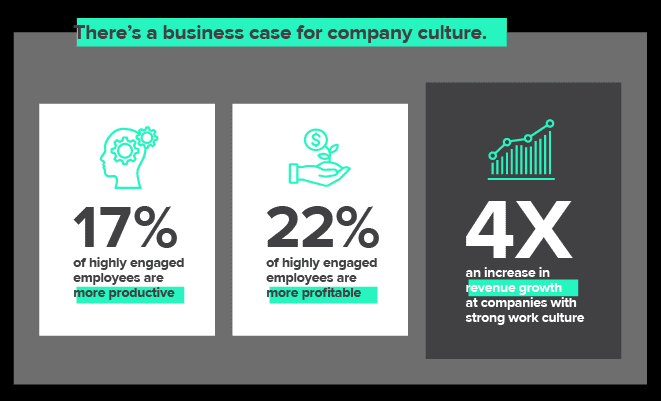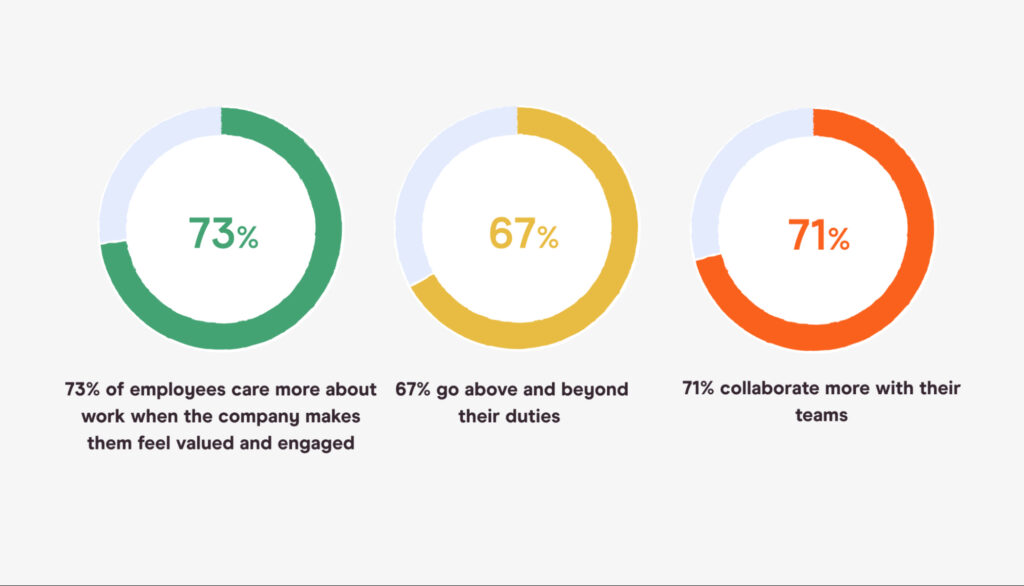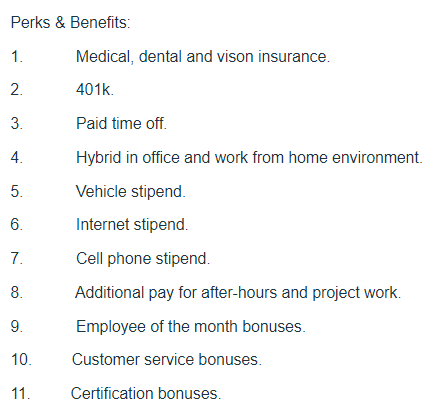Your IT workforce will only be as good as who you hire.
Hire the wrong person, and you’ll be spending a lot of money, time, and resources down the drain.
By the end of this guide though, you’ll know how to prevent this from hurting your business.
Which is exactly what we’ll be focusing on in this article – how to get the most out of your IT talent and solution by hiring the right people.
We’ll be answering questions we get frequently from small businesses such as:
- What should we look for when hiring IT people?
- How do you attract and leverage top talent?
- How do you retain IT talent within your company?
- What type of things should we be looking at when implementing IT solutions?
- When should I consider outsourcing IT help versus hiring them as full-time employees?
- And more.
So, be sure to read on to learn how to hire and retain IT talent while embracing new technologies within your business.
We’ll be covering insights from our experience working with small businesses and taking a look at what tech professionals should look for in a company.
By the end of the article, you’ll have a much better understanding of how to:
- Attract, manage, and retain top IT talent for your small business.
- How to create the right culture of learning that incentivizes people to stay within your business.
- How to nurture IT talent to help them develop within your business.
- Is hiring IT help right for your business in the first place? What you need to know about potentially outsourcing IT help
Attracting And Hiring Top IT Talent As A Small Business
In a nutshell, when hiring IT talent, the perfect candidate should align with your company culture and values.
Having the right cultural fit is probably one of the most important things to look out for in a candidate.
We’ll explore this in detail below. But first, let’s take a look at the typical process a small business goes through when hiring IT talent.
Before anyone even comes in for any kind of interview (whether it’s a phone interview, in person, with the team, etc.), the resume has to at least look presentable based on your requirements.
Typically, you’ll be looking at 2 types of hires:
- Someone you’ll want to hire with less experience and help them grow throughout your organization.
- Or someone who knows their stuff and can hit the ground running.
This will largely depend on your requirements and budgeting.
But from our own experience of hiring, we don’t want a body.
We want somebody that’s going to match our family-type environment and blend in.
Even just one bad egg in a small business of 20+ people can cause havoc.
And it’s not just the mood or not fitting in the environment either.
Someone not fitting in can affect your operations, efficiency, and even your bottom line.
Culture is a top priority for job-seekers. And this applies to IT work and other industries as well.
47% of active job seekers cite company culture as their driving reason for looking for work, according to a study. And from the company side, retention relies heavily on great culture as well.

Source: Designim
To attract the right candidate, we’re focusing on optimizing our ZipRecruiter and Indeed postings to make us stand out.
One way to approach the interview process is to ask yourself if you would ride in a car for 4 hours with the person you’re interviewing.
The challenging thing about hiring people is that you only have a small window of time to make the right decision.
You’re interviewing someone for 45-60 minutes and you have to decide if they’ll fit in your workspace. Which is a big decision, at the end of the day.
This is once again why personality and cultural fit play such a huge role when we’re hiring candidates.
You can teach tech and IT skills, but you can’t teach interpersonal skills.
And it’s not just about how you’ll get along with your new IT hire.
Customer service is also very important, because they might have to go on site and talk to a customer in person.So, filtering for IT candidates based on hard skills might be a grave mistake.
Retaining IT talent within your business
From there, retaining your rare IT talent is equally important.
After all, you’re investing a lot of time, money, and resources in them.
And ideally, you’d like them to stick around for a while at least.
At MIS Tech, we have company picnics, we have fun outside, and otherwise, treat our employees like family.
It’s also important to offer incentives to help people grow.
We very frequently promote from within and give opportunities to our new IT talent hire.
Stipends save time and effort in documenting mileage and show our employees that we value their contributions.
It’s also important to give new employees opportunities to stand out or integrate properly with other people.
Participation in events like Lunch and Learns helps employees stand out and grow within the company.
At least 73% of employees who feel valued by their company care more about work than their counterparts.
Nurturing IT Talent: Strategies For Growth And Personal Development

In addition to promoting from within, we also like to give our IT talent new opportunities to grow and develop within their field.
This includes things like:
- Certifications.
- Sponsoring conferences.
- Hackathons and competitions.
- Mentorships.
- Continuous learning and training programs.
Overall, it’s important to set up a culture of learning.
It might be hard to find people who are actually passionate about their industry.
But if you can spot them during the early interview stages, it’s important you manage to recruit them.
Then, as far as IT skills go, you can help them grow through that culture of learning you’ve established.
By creating a supportive and stimulating environment that values and encourages learning, you can attract and retain IT professionals.
Recognizing and rewarding their efforts also reinforces their commitment and motivation to excel within their field.
Employee stipends and bonuses
At the end of the day, it’s important you treat employees like people and give them actual freedom.
If someone says they want to work from home one day, they should have that right. Without having to provide a “doctor’s note” or a real reason. Additionally, you can encourage them and offer an internet stipend or pay a portion of their home internet.
This is also a win-win approach, as it helps the employee feel more valued and boosts their productivity.
But at the same time, they should always feel welcome at the office.
At MIS Tech, we have fridges stocked with drinks, snacks, and other free options. It’s not uncommon to see someone play on the Xbox in the middle of the day as well.
The reason behind this is that it helps productivity in the long run.
If someone needs 30 minutes to decompress after staring at an awful IT issue for 2 hours, by all means, that’s worth it. Or maybe they answered 200 customer tickets.
Regardless, these things that help employees feel more comfortable also add a lot of value.
Other bonuses we’ve done include:
- New, high-quality hardware and software.
- Quality office equipment (dual monitors, high-quality desks and chairs).
- Internet, phone, and transportation stipends.
- And more.
See what our careers page looks like for more info on that.
In short: The better and more free an employee feels within your small business, the more productive they’ll be. Especially if you want to hire someone for long-term work and for them to develop internally.
Outsourcing IT Help VS Hiring In-House: When To Hire And When To Outsource?

Now, with all this in mind, let’s take a look at the scenario from the perspective of a small business.
There’s A LOT that goes behind hiring a new employee (whether it’s IT or a different department).
You have to take into consideration:
- Their salary (Starting from $50,000/year at the very least).
- Setting up the right culture internally.
- The economics of scale. If you have only one “IT guy” working for you in-house, it’s going to be considerably harder to scale, because they’ll be in charge of most IT tasks. That’s a lot of IT burden to put on one person. If they take a vacation or become sick, your entire operations will be at risk.
- Their skills. For example, they might be good at PC support, but you still might have to outsource your networking, switches, phone systems, servers, and more.
- And many other things.
Meanwhile, the alternative is to outsource your IT services.
With us, it’s a one-stop-shop for all your IT needs, which means you get access to:
- Our IT expertise (30+ people in total).
- Our security and IT tools.
- Easier budgeting options.
- Bespoke IT solutions.
- Unique IT roadmap based on your business requirements and needs.
- And so much more.
Meanwhile, if you hire an IT employee in-house, you gain limited expertise and scaling.
Outsourcing also means you avoid having to pay for hiring, managing, and helping an IT person grow in-house in your business. Base salary aside, you pay their benefits, expenses, promotions, and so much more.
Then, if you want to scale and hire one more IT person, all of the above multiplies by two.
Our philosophy is you do what you do best and subcontract the rest. This is something we apply to our own business as well.
We don’t do our own accounting as it’s not our specialty. Instead, we outsource it to a team of experts.
We’re good at what we do and we bring in other people to help with us running our business.
Conclusion
In conclusion, nurturing and retaining the right IT talent is crucial for small businesses if they want to get ahead in today’s technology-driven landscape.
By implementing the above strategies for attracting, hiring, and developing IT professionals, companies can build a skilled and motivated workforce that drives innovation and growth.
However, it’s also worth noting what goes behind hiring and retaining IT talent for your small business.
- Finding the right candidate.
- Going through a lengthy interview process.
- Setting the right salary based on their experience ($50,000/year to start with, typically).
- Creating the right culture of learning to motivate and keep them around.
- Benefits, incentives, and stipends to keep them growing within your company.
- Promotions, increasing their salary, and so much more.
This can be incredibly overwhelming, not to mention expensive for most small businesses.
What’s the alternative?
Do what you’re good at and outsource the rest.
Here at MIS Tech, we provide an all-inclusive IT solution for your:
- IT projects and strategy.
- Cybersecurity.
- Cloud services.
- Backup and disaster recovery.
- IT operations management.
- Other areas to help support your growing business.
All this, and more, for considerably less than you’d pay for hiring and developing IT personnel in-house.
For more information, see our program pricing or get in touch if you have any questions!
Now, to recap, let’s go over some of the most frequently asked questions about hiring IT talent.
- How do I hire an IT expert?
When hiring an IT expert for your business, the process you should follow is the following:
- Start by defining your needs. What are the specific IT tasks that you need help with? What are your budget and timeline?
- Create a job description. This should outline the skills and experience that you’re looking for in an IT expert.
- Post your job openings. There are a variety of online job boards where you can post your opening.
- Screen candidates. Review resumes and conduct interviews to narrow down your pool of candidates.
- Make an offer. Once you’ve found the right candidate, make an offer and negotiate salary and benefits.
What makes a successful IT team?
A successful IT team is one that is well-rounded and can handle a variety of tasks. They should be able to troubleshoot problems, provide support to users, and implement new technologies as needed.
Here are some of the qualities that make up a successful IT team:
- Communication skills. IT team members need to be able to communicate effectively with both technical and non-technical audiences.
- Problem-solving skills. IT team members need to be able to identify and solve problems quickly and efficiently.
- Teamwork skills. IT team members need to be able to work well together and collaborate on projects.
- Adaptability. IT team members need to be able to adapt to change and learn new technologies quickly.
- Should I hire an information technology employee or outsource it?
There are pros and cons to both hiring an IT employee and outsourcing your IT needs. Ultimately, the best option for your business will depend on your specific needs and budget.
Here are some of the factors to consider when making your decision:
- Cost: Hiring an IT employee is typically going to be more expensive than outsourcing your IT needs. However, you may have more control over the quality of service if you hire an employee.
- Flexibility: Outsourcing your IT needs can give you more flexibility, as you can scale your IT resources up or down as needed. However, you may have less control over the quality of service if you outsource your IT needs, depending on who you work with.
- Specialized skills: This will also depend on who you work with. If you want something very specific and can afford it, hiring a new employee might make sense. If you need a few different forms of IT support (which many small businesses do), then hiring a reliable outsourcing partner makes more sense.
Our philosophy is that you should do what you’re good at and outsource the rest to experts.
This is why we don’t do our own HR, accounting, and so on.
Ready to unlock the full potential of your IT infrastructure?



